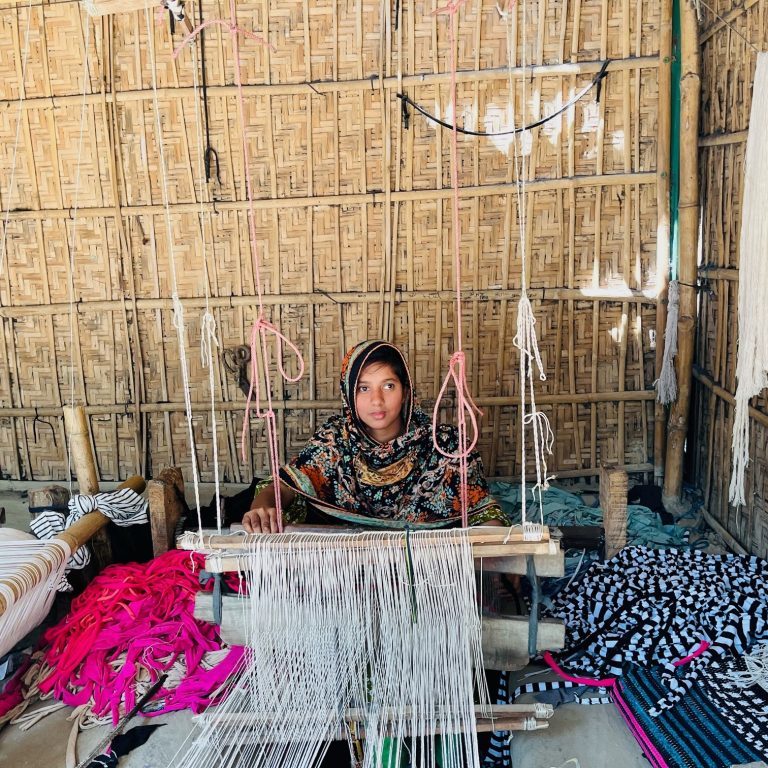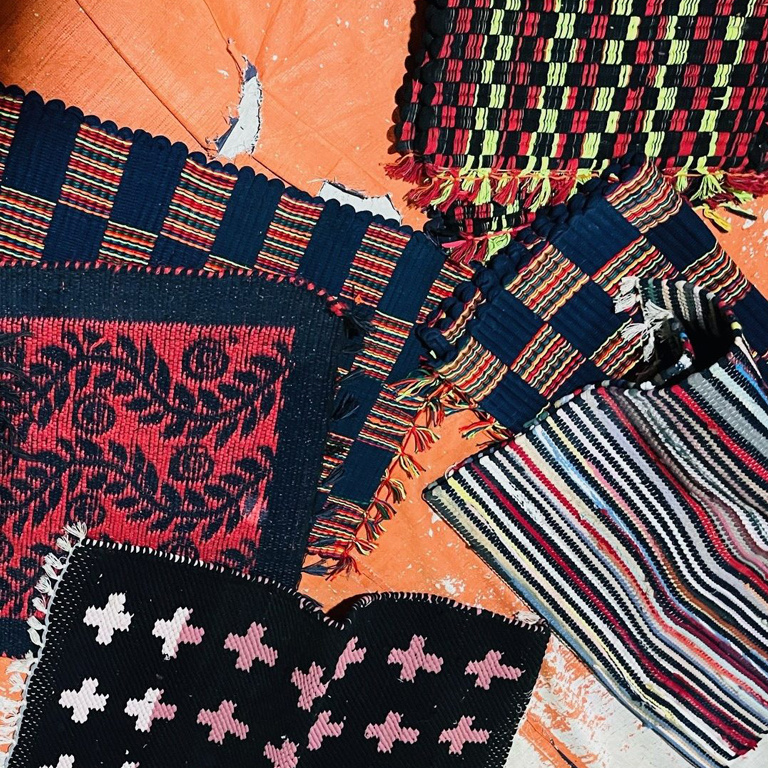‘Pre-Consumer Textile Waste Recycling with No GHG Emission’


This is Baliadanghi in Thakurgaon district, a small village in the northern edges of Bangladesh. There are around 20 or so cottage factories in this village, where people of both genders from all walks of life stand and work with pit looms in their own houses, making doormats using textile waste. Day in and day out, they juggle their time between loom work and household chores, maintaining their livelihoods and their responsibilities to their families.
Their work is to turn strips of leftover textile, commonly known as “pre-consumer textile waste or Jhoot”, into floor mats. But unlike massive factories, where Jhoot is converted into fiber, these cottage factories bring Jhoot from Konabari Jhoot Cluster in Gazipur, segregate and directly use them for making doormats using pit looms. Pit looms are manually operated by the worker; thus, the process does not use any electricity, water, or dye. Workers use different colors of fabric waste to design the doormats, innovation in designing doormats is done by the workers, saving CO2 emissions, water consumption and dye use.
While this process is fully environmentally sustainable, and contributes to employment in rural areas, these factories and the workers are completely out of policy considerations in Bangladesh. Around 150 workers are involved in these cottage factories in the village, supporting around 600 people’s livelihood. These small and cottage factories do not receive any financial incentives, bank loans and financial support for their growth, nor any training and workers wellbeing support is provided to these factories. It is undeniable that this textile waste is coming from global brand’s garment production in large and medium factories in Gazipur, Narayanganj and Dhaka. It is not just Baliadanghi. There are hundreds of small factories of this type working in many parts of the country, such as Rangpur, Syedpur, Bogura, Pabna, Sirajganj and so on.
In Baliadanghi village, there is little else to do other than agriculture work, so having such small factories provide jobs for both male and female workers. Male workers work here when there is no plantation or harvesting work needed in agriculture, while women work here after they finish their household chores. Although they are low paid, there is flexibility of work here. Both work for 8 to 10 hours a day, earning between USD 2.2 to USD 3.2 per day, depending on how many doormats they can make in a day. Making one piece of floor mattress gives women 7 Taka (16 cent in USD); and a woman, on an average, can make 40-50 floor mattresses per day. The doormats are sold locally and are often exported indirectly. One of the female workers said, “Since we earn, we have freedom, we are respected in families, and we can contribute to the family.” indicating that this opportunity gives women freedom and dignity. However, neither any training or support is provided for occupational health safety and wellbeing to workers, nor any organizational capacity building initiative is undertaken to support entrepreneurial skill. They are ignored in the mainstream thoughts of circular economy, which global brands, multilateral institutions and the national government have undertaken in Bangladesh.
When considering textile recycling, it can be recycled for 2 to 3 times for making fashion clothes, but it is not without the use of electricity, water and dyes. However, using pit looms in such cottage industries, which neither use electricity, water nor any dyes, making it a cent percent green production with socioeconomic growth. Should we not rethink this industry and help these workers grow to make circular economy more inclusive and environmentally as well as socially sustainable?
This case is prepared based on the field work by CREATE Research project (20-10-AAU), Funded by DANIDA, Denmark.
Cite As: Rana, M.B and Faruqui, F.H. (2024) ‘Pre-Consumer Textile Waste Recycling with no GHG emission’, accessed on http://createproject.aust.edu/publications/, Case study, Circular Economy in Bangladesh’s Apparel Industry (CREATE) Project Publication series.